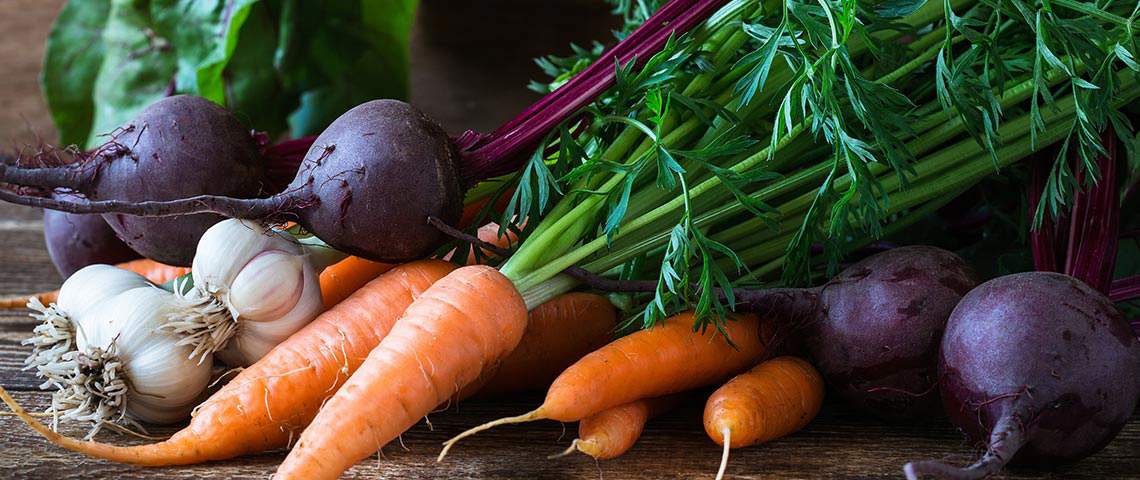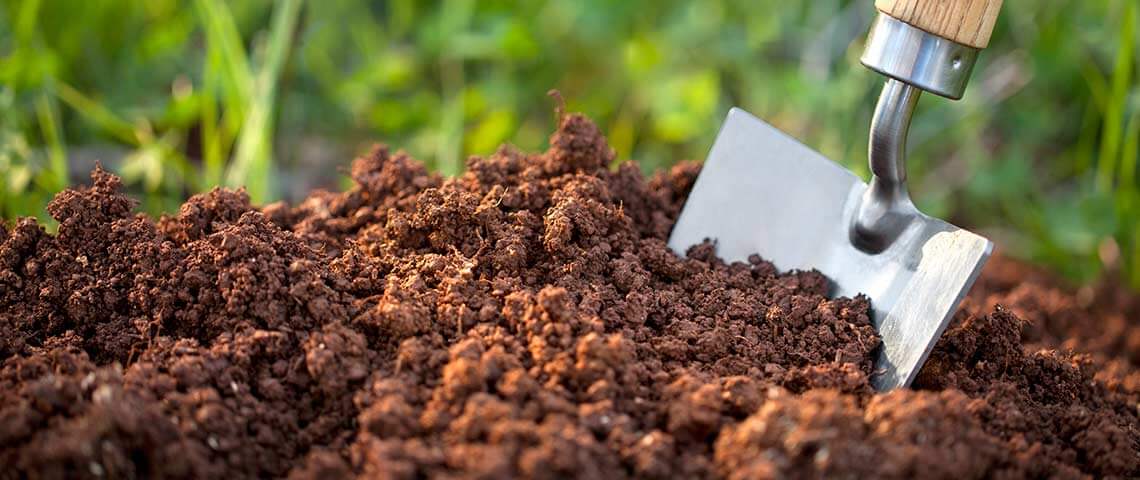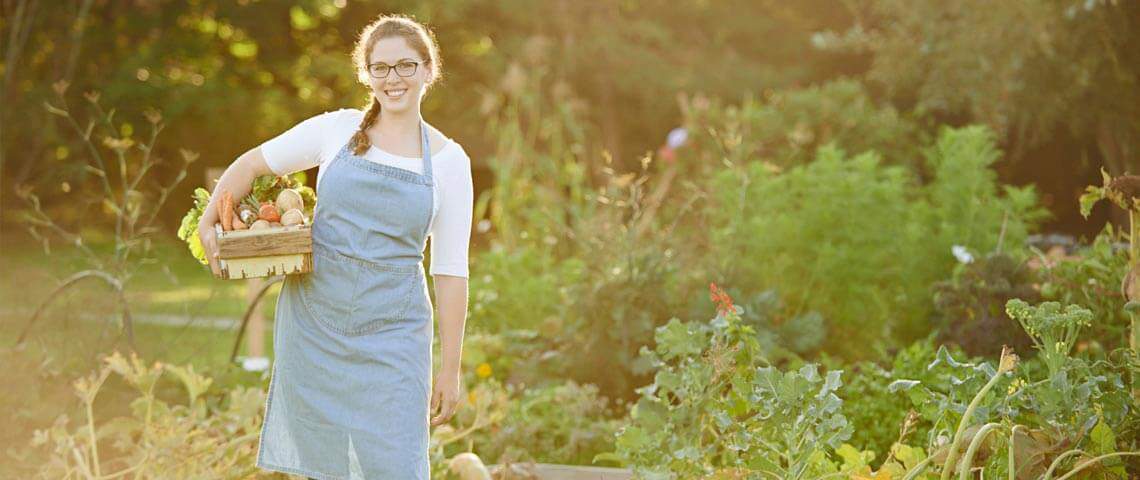How to Grow an Organic Vegetable Garden
Growing your own organic vegetables is a fun, satisfying way to bring nutritious foods to your family's table and benefit your world as well. An organic approach to vegetable gardening incorporates the entire garden — from the soil, seeds and plants to fertilizers and pest management — in a way that celebrates healthy foods, ultra-local growing and sustainability. All it takes is a change in perspective and some simple basics, and you're on your way to growing organically.
- Getting Started With Organic Gardening
- Preparing Your Soil for Organic Vegetables
- Finding Organic Seeds and Transplants
- Feeding Your Garden the Best Fertilizers
- Managing Vegetable Pests Organically
- Reaping Organic Veggie Benefits
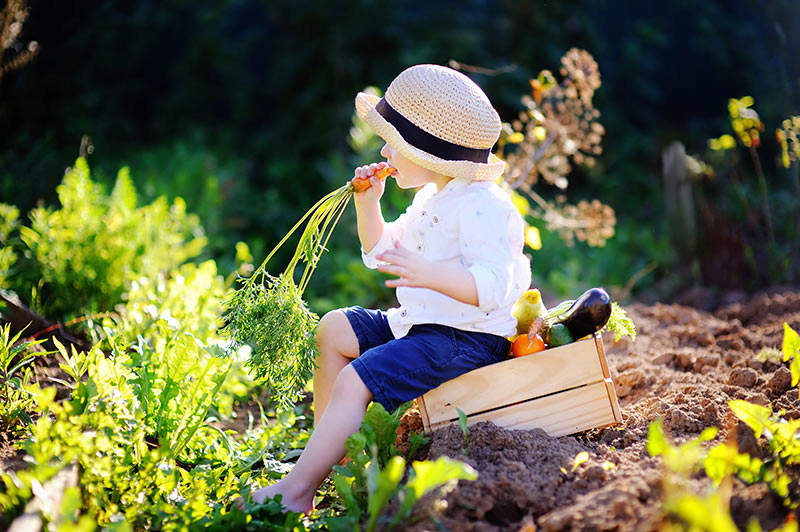
Organic gardening helps ensure soil and snacks are healthy.
Getting Started With Organic Gardening
In its simplest form, organic gardening means gardening without man-made chemicals. Instead of synthetic ingredients, organic gardeners rely on ingredients that occur naturally and that work in harmony with the natural goodness that comes from healthy, productive soil.
Organic gardening has many levels. Commercial market gardeners must meet very strict guidelines to produce and process certified-organic foods, but many home gardeners may focus simply on nurturing their soil and plants with organic and natural-based products that avoid chemical residues in foods and the environment. You can enjoy the benefits of an organic approach to gardening, whatever level works for you and your family.
Preparing Your Soil for Organic Vegetables
Healthy soil is essential for a productive organic vegetable garden. For many urban gardeners, the soil around their homes was trucked in during construction or it's been depleted of nutrients through years of limited care or overuse. Taking time to understand your soil and restore it to a healthy, nutrient-rich, natural state gives your organic garden a head start.
A simple soil test — easy to do with kits from your local extension office— gives you an inside look at your soil's health. Results also include expert recommendations on how to fix the specific problems your soil may have. Soil pH is especially important, because it influences whether your vegetables can access the nutrients in your soil or the organic fertilizers you add. A test lets you know if your soil needs soil amendments to restore pH balance and nutrient availability. It also lets you know about your soil's organic matter.
Healthy levels of organic matter help improve soil structure, enhance soil fertility, improve moisture retention and drainage, and help provide vegetables with optimal conditions for producing nutritious, abundant crops. Let your soil testing lab know you want to grow organic veggies; they can provide tailor-made recommendations for you.
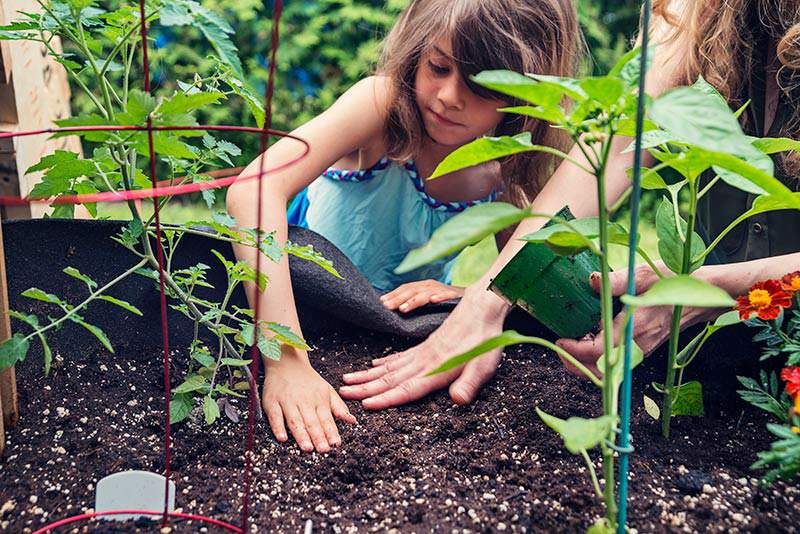
Rich, organic soil provides a foundation for nutritious vegetables.
Finding Organic Seeds and Transplants
Many organic home gardeners focus on using organic methods to grow whatever plants and seeds they choose, but others take that organic gardening a step further and start with vegetable seeds and transplants that were grown organically, too. As organic gardening has grown in popularity, organic seed and plant sources have grown, too.
One of the best places to start your search is the internet. Many seed companies now offer certified-organic seeds like those used by commercial organic growers. These seed packets will carry the USDA Organic logo, which guarantees their production met strict national organic standards. Not all types of seeds are available as certified-organic options, but many are still grown using organic methods. Seed companies will note the difference.
Organic vegetable transplants sold in local garden centers will generally have tags and signage indicating they were grown organically. Never hesitate to ask a plant grower or seller about their organic growing methods. Reputable growers love to share their knowledge and organic growing skills with gardeners who want to understand and learn.
Feeding Your Garden the Best Fertilizers
Even with rich, healthy soil and organic plants in place, you still need to feed your garden. In the plant world, vegetables are notorious "heavy feeders," meaning they use a lot of nutrients, which can deplete garden soil. High-quality, natural-based fertilizers such as the Alaska by Pennington line complement an organic approach that feeds your soil as well as your plants, enhancing garden health, beauty and productivity.
Even as a home gardener, you can feed your garden fertilizer that meets the same strict guidelines required for certified-organic crop production. When a fertilizer label carries the words "OMRI Listed," that means that product has passed a stringent review by the Organic Materials Research Institute (OMRI). With OMRI-listed Alaska Fish Fertilizer 5-1-1, you can feed your vegetables premium, all-organic, natural ingredients proven to meet or exceed the strict standards for use in certified-organic growing.
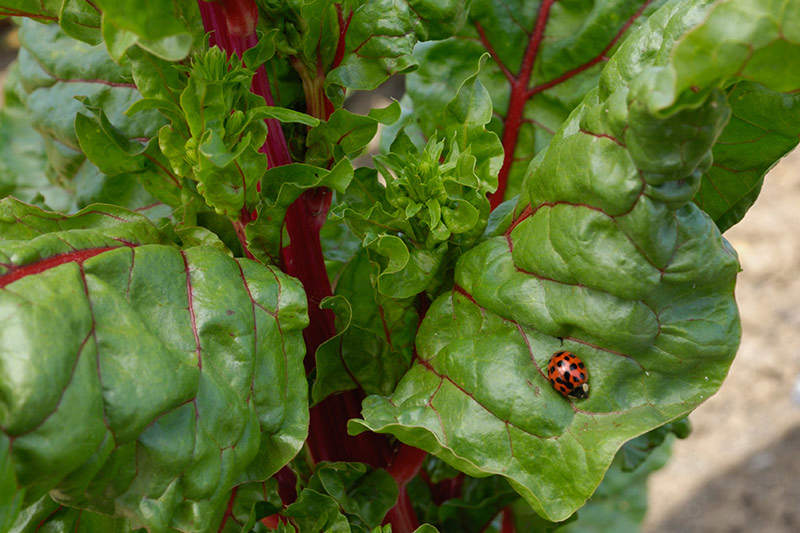
Beneficial insects eat bad bugs that can damage vegetables.
Managing Vegetable Pests Organically
Garden pests, from insects to diseases, can affect organic gardens just as frequently as non-organic ones. Healthy plants are less likely to succumb to pests, but organic gardening doesn't mean you have to stand by as they do. Many pesticides are also OMRI-listed to help control more serious infestations, but the easiest organic steps against pests don't require pesticides at all.
Organic gardeners often turn to "integrated pest management," often referred to as IPM, which combines several organic-minded approaches. Manual intervention, like the name suggests, is the hands-on way to manually remove pests from plants – with gloves, of course. Chemical-free barriers that protect vegetables include things as simple as copper barrier tape to repel snails and slugs or fabric-like row covers that come between pests and plants.
Beneficial insects can also help limit insect damage in your garden. Instead of eating plants, these "good bugs" eat the bad bugs that damage your fruits and vegetables. Many garden stores and mail order sources sell lady beetles and other beneficial insects, often with overnight delivery included, so you can release these beneficials into your garden when their insect adversaries show up.
Reaping Organic Veggie Benefits
By gardening organically, you ensure that natural, earth-friendly ingredients go into your soil — and your food — instead of unknown products that could prove harmful to wildlife, water supplies and you. You can rest easy knowing exactly what goes into the food you grow, harvest and share with family and friends.
With homegrown, garden-to-table organic veggies, you and your family enjoy other benefits as well. Compared to non-organic produce, organic veggies and fruits provide higher levels of vitamin C, antioxidants, iron and other nutrients, along with lower levels of potentially harmful chemical residues.1 Garden-ripened produce that goes straight to your table, as opposed to sitting even a few days at a store, also enjoys higher levels of vitamins and antioxidants.2 Plus, as any gardener will tell you, homegrown just seems to taste better, too.
Whatever your level of expertise and your organic growing goals, an organic approach to vegetable gardening makes a healthy difference for the people and the world around you. The Alaska by Pennington brand is committed to providing you with the finest in organic and natural-based products to help you nurture the environment, feed your family, and achieve your organic goals.
Alaska is a registered trademark of Central Garden & Pet Company.
Pennington with design is a registered trademark of Pennington Seed, Inc.
Sources:
1. Crinnion, W.J., "Organic Foods Contain Higher Levels of Certain Nutrients, Lower Levels of Pesticides, and May Provide Health Benefits for the Consumer," Alternative Medicine Review, April 2010.
2. Watters, C., "The Nutrition Benefits of Eating Locally," Hānai'Ai / The Food Provider, Western Sustainable Agriculture Research & Education, 2013.

